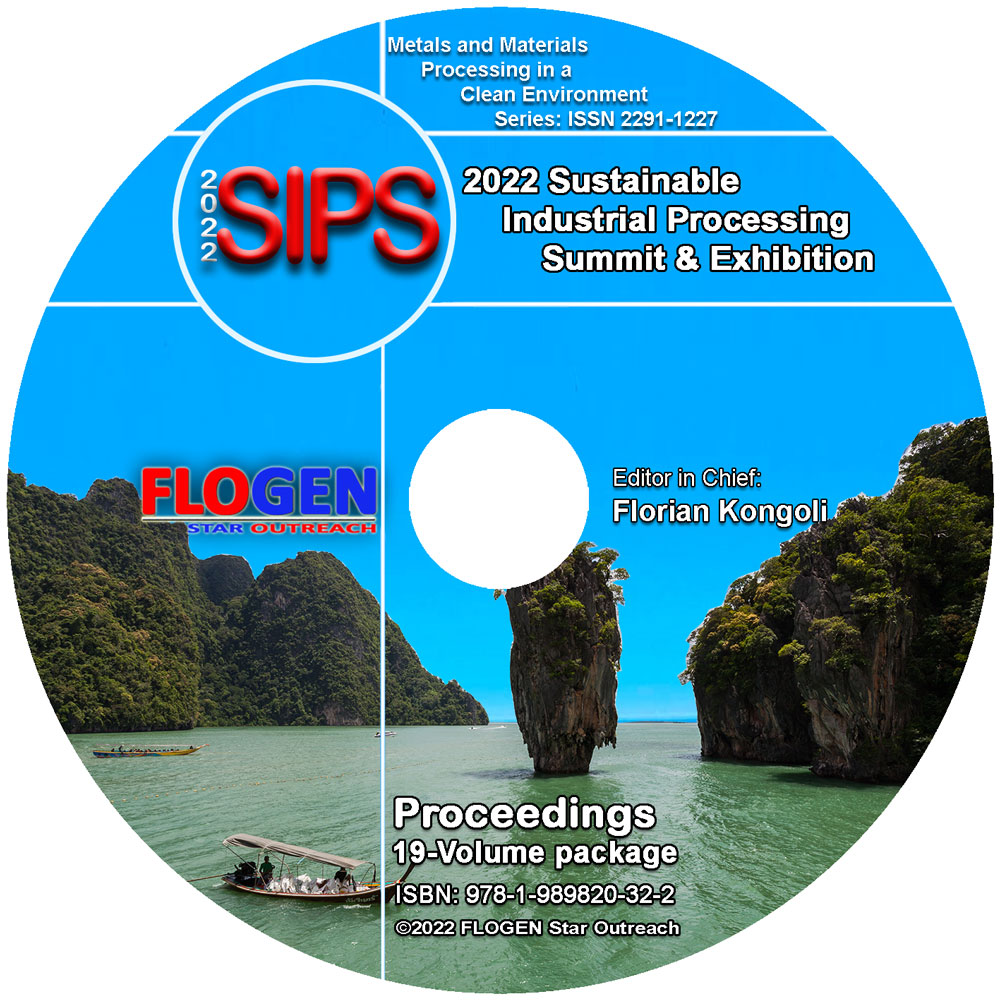2022-Sustainable Industrial Processing Summit
SIPS2022 Volume 3
Horstemeyer Intl.Symp.
Multiscale Materials Mechanics & Applications
| Editors: | F. Kongoli,E. Aifantis, A, Konstantinidis, D, Bammann, J. Boumgardner, K, Johnson, N, Morgan, R. Prabhu, A. Rajendran |
| Publisher: | Flogen Star OUTREACH |
| Publication date: | 22 December 2022 |
| Pages: | 382 pages |
| ISBN: | 978-1-989820-38-4(CD) |
| ISSN: | 2291-1227 (Metals and Materials Processing in a Clean Environment Series) |

CD shopping page
Fatigue Mechanisms of Aluminum Alloys Fabricated by Additive Friction Stir Deposition
J. Brian Jordon1; Paul Allison1; Ben Rutherford1; Dustin Avery1;1THE UNIVERSITY OF ALABAMA, Tuscaloosa, United States;
Type of Paper: Regular
Id Paper: 142
Topic: 1
Abstract:
Additive manufacturing is generally associated with powder-based beam melting or sintering methods. However, recent innovations in solid-state additive methods such as additive friction stir deposition (AFS-D) provide unique capabilities to additively manufacture or repair alloys with wrought like properties. The AFS-D process is a novel method that exploits high-shear and severe plastic deformation to produce fully-dense, near net-shape structures. In the AFS-D process, feedstock material is deposited through a hollow rotating tool that generates frictional heat which results in solid-state metallurgical bonding. While the feasibility of the AFS-Deposition process has been demonstrated on various materials, the fatigue performance of this new manufacturing process for difficult to weld alloys is unknown. As such, in this talk, we present an investigation of the fatigue mechanisms of 6xxx and 7xxx aluminum alloys fabricated from the AFS-D process. In particular, fatigue crack nucleation and crack propagation mechanisms associated with the longitudinal and build directions of the AFS-D process are discussed. In addition, the effect of heat treatment on fatigue behavior is also presented. Lastly, we discuss the potential of the AFS-D process in repair applications and barriers to further implementation.